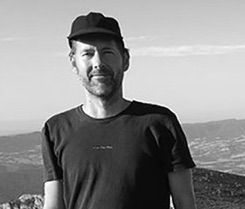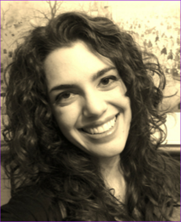Tools for designing sustainable communities and organisations
This course will explore permaculture as a tool for designing communities and organisations. Social permaculture is about connection – between people, economies, and governing structures – and creating the conditions for humans to flourish on a societal level and to develop beneficial relationships with the ecosystems which sustain us.
The Social Permaculture course will explore permaculture as a tool for designing communities and organisations. It will help you to understand things in terms of connection – between people, economies, and governing structures – and how to create the conditions for humans to flourish on a societal level, as well as how to develop beneficial relationships with the ecosystems which sustain us.
Permaculture is a design system for creating sustainable and resilient communities and environments. It offers practical tools for creating productive and efficient landscapes as well as organisations and social structures. Permaculturalists place a high priority on developing resilience – the capacity to withstand shocks and disruptions – and we will look at connections between designing for resilience on a community and a personal level.
While the discipline originated as an ecological method for designing sustainable full-featured human settlements, more recently the design principles have been applied in urban, social and group contexts to organise, communicate and cooperate more effectively, rethinking existing social and economic structures – we call this “social permaculture”.
The ethics and principles of permaculture suggest a strong critique of current forms of social organisation and economic relationships. If we take seriously the idea of learning from natural systems, we are encouraged to reimagine economic and social systems as embedded in these, supporting the resilience of the system as a whole. Learning about ecological principles and patterns can help us to transform our human interactions and organisations to be dynamic, responsive to change and a means of flourishing for everyone involved.
Over the course of six days, participants will examine how to apply permaculture to civil society through:
Course participants will consider how each individual functions in society, and what are our social and ecological impacts; and how everyone can find their own roles in responding to the systemic crises we are facing: economic, social, and environmental.
The facilitation of the course will demonstrate how social permaculture can be applied to group processes, and its content will include:
* Permaculture Design: Principles and Practice
* Invisible structures: Creating solid and efficient organisations
* How to collaborate effectively in groups (decision making, leadership/natural authority, structures, dynamic activities, etc.) and strategies for creating environments in which something more than the sum of the individual parts can happen. Avoid the typical pitfalls for all groups (power, money, sexuality, etc.). How to increase the energy of a group and sustain it, how to grow as a group
* Ethical money, alternative currencies, time banks, divestment, social innovation and enterprise, right livelihoods
* Communities (including the Global Ecovillage Network and the Transition Town movement)
* Examples of Social and Urban Permaculture from around the world
* Design your Life: A Process for Finding Your Path
* Designing factors of community resilience (including preparation and response to disasters)
In the solidarity economy:
(See details of our approach to radical economics here)
Contact us
to apply

Location:
Alfred Decker’s passion in life has been ecological and social justice activism, of which permaculture has played a central part. Since his first Permaculture Design Course in 1998 in California, Alfred has been involved with social movements and projects throughout Europe and the Americas. He is an award-winning permaculture designer, a certified educator with the Permaculture Association Britain, and one of Europe’s leading permaculture educators. Alfred is the founder of the 12 Principles Permaculture Design consultancy, Permacultura Barcelona and the Forest Gardens project at Can Masdeu; is a co-founder of the Spanish Permaculture Academy (Academia de Permacultura Íbera); and was a member of the European Permaculture Teachers Partnership and the Permaculture Council of Europe. Alfred holds a post graduate diploma in sustainable architecture and renewable energy (Centre for Alternative Technology).After taking a permaculture teachers training with Rosemary Morrow in 2011, he undertook a two year mentorship and later co-taught six courses with her, ultimately earning a Diploma in Permaculture Education & Community Development in 2013 through the Blue Mountains Permaculture Institute (Australia). Committed to furthering the teachers’ training platform “Training Permaculture Teachers” (TPT) that Rosemary developed in over three decades of teaching experience around the world, Alfred co-edited her TPT manual and organised a successful crowdfunding campaign to develop the platform.In the coastal mountains of Montnegre, Catalunya, Alfred is the co-director of the community biochar project Montbio, which won a 2017 Lush Spring Prize for Social and Environmental Regeneration.

Location:
Ever since stumbling across the concept of Transition Towns back in 2007, Ana Huertas has been committed to deep social transformation for the regeneration of our human and natural ecosystems. Ana is part of the coordinating team for the Spanish Transition Hub, where she provides help to local citizen-led initiatives trying to respond to the challenge of climate change and building community resilience. She has worked as an international cooperation technician for community development, sustainable agriculture and holistic education, and is also a trained Permaculture teacher and trainer for the Transition Movement. She has conducted research on climate change, urban and rural resilience, group dynamics and participatory tools for social change.
With extensive experience in systems thinking and process work for group facilitation (through El Camino del Élder, IIFACE), she understands that most of the alchemical transformation we need takes place within group dynamics. She has served as vice-president for the meta-network ECOLISE and is currently the coordinator of the Municipalities in Transition project. Ana currently lives near Barcelona and is involved in several local initiatives on ecology and sustainability.

Location:
An Maeyens (she/her) is a facilitator and trainer with over two decades of experience in grassroots movements. She specialises in creative, inclusive agenda design and brings deep expertise on group culture, power dynamics, and transformative learning. Starting of in the anti-globalisation movement she has trained thousands in civil disobedience, supported international coalitions, and developed multilingual training programmes and toolkits. Her work spans movements, cultures, and countries, guided by a commitment to care, accessibility, and leaderful organising.

Location:
Ari’s activism began in 2002, at age 16, as a Bosnian refugee in Canada, where they founded and coordinated a group for LGBTIQ high school students and allies. They were a co-founder and leader at kolekTIRV in Croatia and Trans Network Balkan, involved in community organizing, advocacy, program management, team coordination, capacity building, education, media work, campaigns, events, fundraising, etc. In 2024, they joined the Supervisory Board of the Croatian Trade Union Collective of United Precarious Workers and Activists (SKUPA).
Beyond the Balkan region, Ari served as a Board member at Transgender Europe (TGEU), where they held roles as Secretary, Treasurer, and later Co-chair. They have also been a trainer with the Center for Artistic Activism and served on the Advisory Committee and since 2022 as a Community Care Facilitator at FRIDA — The Young Feminist Fund. Since 2024 they are the Operations Manager at Global Philanthropy Project.

Location:
Sergio (all pronouns) was born in Romania and migrated to Germany in the early 2010s. In the past, he was a social worker with homeless people and a social consultant for Eastern European migrants for various organisations. Trained as a filmmaker, he spent two years making a documentary about the ‘civic reawakening’ in Romania and the waves of protest it brought with it. In connection to this, Sergio is currently co-steering the development of an online open-source participative knowledge production platform on activism in Romania. Over the past nine years, Sergiu has offered his skills to various journalists, grassroots collectives and campaigns, mostly working within the labour rights, climate justice, international solidarity and anti-authoritarian movements in Germany and Romania. Nonetheless, his biggest focus since 2020 has been his work as an organiser with the anarcho-syndicalist Free Workers Union, where he focuses mostly on organising Romanian migrant workers on construction sites, in factories and in the agricultural field.

Location:
Linzy Na Nakorn is a movement director, politicised somatics practitioner, community organiser and facilitator. For the past decade she has been facilitating movement, body work and creating theatre, dance and participatory performance that advocates for and organises with communities in pursuit of housing, disability and racial justice. Her movement practice focuses on trauma-informed approaches to building resilience, capacity and joy via way of the body for personal, interpersonal and community sustainability. Linzy was a Co-Director of The Big Ride for Palestine in partnership with The Gaza Sunbirds, Native Woman Ride and Middle East Children’s Alliance; using cycling as a tool for mobilising active solidarity and in support of campaigning for the rights and self-determination of the Palestinian people. Linzy is part of a UK network of activists and artists advocating for Radical Care – supporting organisations, researchers and institutions to work towards system change in societal approaches to labour, leadership and access.

Location:
Jeroen (he/him pronouns) has been involved in grassroots social movements for more than two decades now, starting back when he was fifteen. Throughout the years the fights for “climate justice” and “migrant justice” have been consistently on top of the list of struggles that make his heart beat faster. A key transformative moment for Jeroen was reading Paulo Freire’s Pedagogy of the Oppressed. Freire’s revolutionary pedagogy gave him a language to support the creation of emancipatory learning environments, rooted in a desire for collective liberation. Jeroen has also been exploring in depth Boal’s Theatre of the Oppressed and Joanna Macy’s The Work That Reconnects among other methodologies to build his trainer’s toolkit. Inspired by the liberatory possibilities of these traditions, he started an organization with a friend, LABO vzw, based in Belgium, where he has worked as a trainer and campaigner between 2013 and 2023.

Location:
Ella brings more than 10 years’ external experience working with not for profit and community based organisations across diverse themes including: advocacy for migrant communities; local community engagement in national policy making; and structural relationships between poverty and disenfranchisement, and education and poverty. Immersed in critical theory in her early 20s she brings a holistic and questioning approach, and is passionate about systemic solutions that centre relationship and interconnection between ecology and society. A long standing member of the collective, Ella has been part of the core team since the inception of the Ulex Project. Her work bridges facilitation, developing project partnerships, governance, strategy, operations, and project and programme evaluation. She has developed and overseen more than 70 partnerships with a range of different actors across European social movements.
Ulex: Latin (argelaga Catalan, gorse English) noun:
1. A thorny-evergreen flowering shrub, with a high capacity for regeneration and resilience. Its seedpods open in contact with fire and it reshoots from charred stumps. A successionary plant that grows well under challenging conditions. It improves soil fertility through nitrogen fixing, preparing the way for renewed biodiversity.
2. A traditional choice for igniting fires. Burns hot and bright.
3. A networked project adding nutrition and fertility to European social movements through training and capacity building. It kindles the realisation of social justice, ecological intelligence, and cognitive vitality.